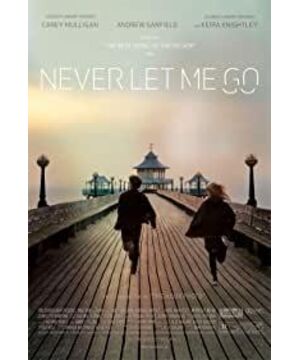Nationality and Imaging Worldview
In the film industry, the blending of different ethnic and cultural backgrounds across nationalities is not a new thing. Individuals from different backgrounds, when trying to understand individuals in other regions, will have deviations in their understanding of others due to the limitations of concepts and ideologies, which may be quite different from the real objective existence. Not everyone has the opportunity to be a travel buddy and travel the boundless world, but out of curiosity about the unknown, all of them are eager to learn about the world of others in some way. Movies are naturally the most intuitive way. People from different regions convey and display different trends of thought and civilization.
The gap between East and West is not just separated by a few oceans. The gap in thinking and ideology is wider than the Red Sea between Israelis and Egyptians. Labels and stylized summaries have become the norm, and perhaps because of this, the mysterious and metaphorical East has become the most common subject matter in Western films when they fry exotic food. In 1993, "The Remains of the Day" by Kazuo Ishiguro, a British-Japanese novelist, was put on the movie screen. Its delicate narrative style with Asian background and British-style sentiment are perfect. The fusion reflects the profound and complex aspect of the spiritual world of human nature. More than ten years later, in 2010, Kazuo Ishiguro once again came forward as a screenwriter and directed a more restrained and thought-provoking movie "Never Let Me Go", which shows that the unique perspective of Asian thinking has become a global phenomenon. The historical stage of the film has achieved special attention.
The mainstream meal, the exotic
Kazuo Ishiguro is a British-Japanese novelist who was born in Nagasaki, Japan in 1954 and immigrated to the UK with his family in 1960. Even so, the gloom that originated from Dongying in his bones has not disappeared due to the change of his nationality. It can be seen from the comparison of these two films that were filmed far apart, although "Leave Traces of the Past" and "Don't Let Me Go" are completely opposite in terms of subject matter - classical repertoires and classical repertoires. Semi-sci-fi dramas, but from the core idea, these two films are inseparable from the undercurrent that Japanese traditional culture brings to Kazuo Ishiguro - gloomy, negative, and the repression that endures to the limit.
Looking at the two films, "Leave Traces of the Past" is relatively more popular: the very polite British demeanor and forbearance and repression did not break out the Japanese undercurrent until the last moment - it is to take care of the United Kingdom and Japan A classic film of the people's double taste. Obviously, this style isn't the stuff of the mainstream Academy Awards - so the film just slapped the Oscar nominations and then disappeared. With the exception of the 1993 NBR Award, which awarded best actor to Anthony Hopkins, the film didn't get much of an award, but it was popular with the masses. Hot attention was left in the field of vision. In "Don't Let Me Go", Kazuo Ishiguro continued his consistent style, expounding his fixed themes in the narration of classical British Austen-style novels: class differences, the cruel reality of broken dreams, and Relatively cruel, indifference and despair, passive waiting.
In "Leave Traces of the Past", Hopkins successfully played the "boring show" of the hero's housekeeper - not only the demeanor of an old-fashioned and traditional British gentleman, but also the responsibility and repression that the Japanese value most. The perverted" trait is vividly expressed. In the two-hour-long film, there are almost no clips that can be called climaxes; only the extremely dull atmosphere is contained in the lines and dialogues of the actors. Hopkins has never responded to the frequent courtesies of the housekeeper, either out of professionalism or out of deliberate ignorance-in short, even on the side of reunion after 30 years, the last time in the rain Shaking hands, but still nothing. "Don't Let Me Go" is a sci-fi film with a modern theme in a costume film; the setting of the beginning scene has the feeling of a classic drama of a British manor at the end of the 19th century, but the theme is a rather modern clone of human morality. There is an eternal contradiction between the huge benefit driven by the development of science and technology and the evils of human nature. The rhythm and handling of the film are highly consistent with "Leave Traces of the Past", and Kazuo Ishiguro continued the emotion of forbearance, and only showed all this indifferently throughout the film: the protagonists in the film did not escape at all. Consciousness, everything is suppressed to the end in this unpleasantly normal and absurd situation. The ending looks like it's so easy to change - but it doesn't happen in the end, and it's silent to the point of cruelty until the end of despair. And what shatters all the audiences in front of the screen is that there is no reason for this, and life itself is darker than the movie. Kazuo Ishiguro has written a short story with a thriller theme. It is amazing that the whole novel is carefully describing the faint details of the frightening, but until the end of the novel, there is no terrifying ending. state of panic. This approach is exactly the same as his films-although it is a great test for the audience's patience, but now it seems that his films successfully interpret the differences and blends of Eastern and Western cultures in the most subtle way.
National characterization, who has the right to speak
It can be seen from the selling points of Kazuo Ishiguro's films of the same type that were shot decades apart, why such films can be very attractive: from the plot point of view, the script may not be perfect, but cultural differences provide a different perspective here ——The national characterization that has been labelled. Just like the stereotyped Germans in the north who have been in the haze all the year round always stand in their own position and speculate on the enthusiasm and sunshine of the Italians in the south for no reason, but never thought that they also have their own negative side. The reason why people think this kind of film is novel and charming is because they use the film to experience the exotic style they imagined in their hearts. As for the gap between this exotic style and objective reality, no one will be too entangled. In terms of ideological differences between different races, Asians are probably the most incomprehensible, that is, Europeans' aesthetic orientation towards Asians. When "Harry Potter and the Goblet of Fire" hit theaters, angry Chinese audiences flooded the Internet to vent their dissatisfaction with Zhang Qiu, the Chinese girl who made her debut in the show, ignoring that her looks really fit the big picture. The fact that some Europeans and Americans have qualitative expectations for the "mysterious East" nation. In "The Veil" filmed in 2006, Chinese fans may have been brooding over the role of the Chinese wife played by Lu Yan who married a British diplomat. Because of its primitive and simple appearance, people feel that this alternative to ugly image is really detrimental to the gentle and graceful image of Chinese women in their hearts - but obviously, Westerners are more optimistic about this kind of primitive roughness. In their hearts, Lu Yan is more representative of Asian characteristics. Likewise, how many real yellow people can identify with this characteristic is not the concern of most white people. Because the right to speak of national characterization and labelling is still in the hands of the masters of mainstream thought and ideology.
The world is flat, nations are blended, and cultures are diverse; but the right to speak will always belong to the strong. People in different situations will look at others from their own perspective through colored glasses. Whether this method is ultimately objective or not depends on the strength of the qualitative side. Ironically, this is one of the themes that Ishiguro's films have consistently addressed: power and class, and the winner decides everything. In "Remains of the Day", Kazuo Ishiguro said through the mouth of the housekeeper Steven: "For people like you and me, the cruel reality is that we have no choice but to leave our destiny to those who are The great gentleman who lives on the axis of the world and hires us." And in "Don't Let Me Go", the lives of the vast majority of clones are also passive submission to the authority of a small number of rulers, and this submission is even just a matter of course— Kazuo Ishiguro's films are also a portrayal of the helpless reality of human beings: at the beginning, we always have good expectations; however, in the end, we can only indulge in the invisible prejudice controlled by mainstream power that we cannot overcome or even realize. middle.
View more about Never Let Me Go reviews











